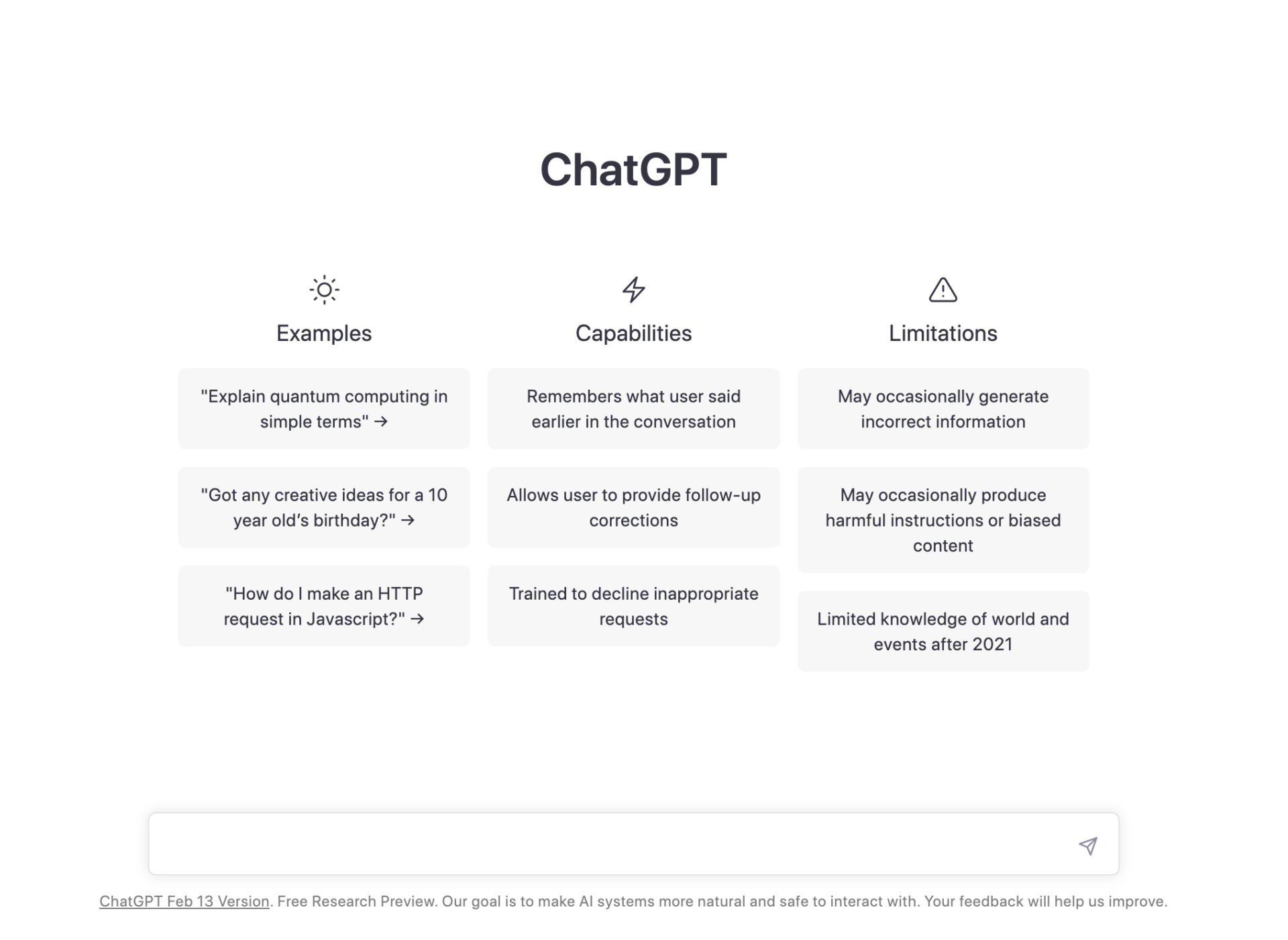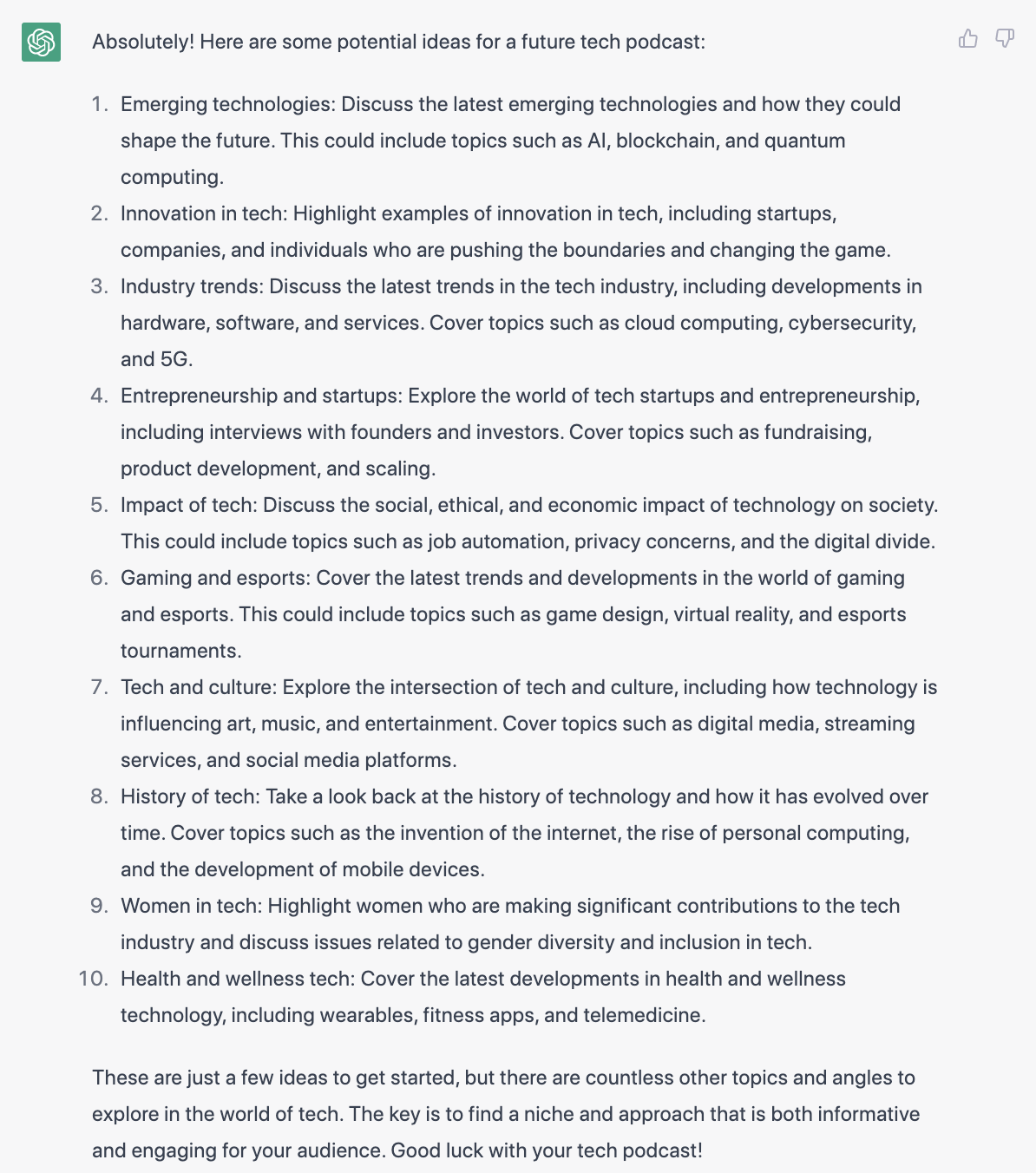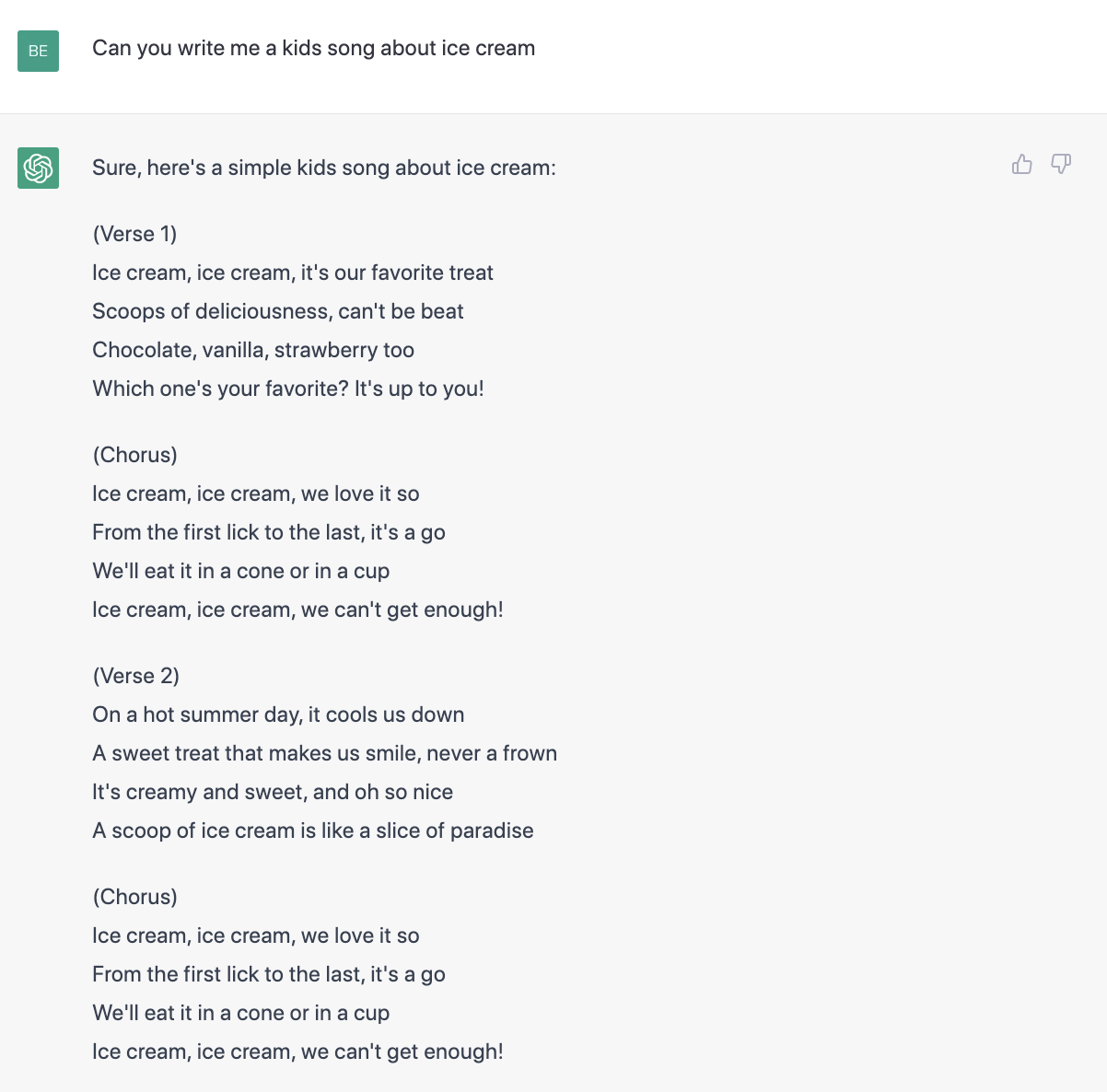As a branded podcast agency we’re always keeping an eye out for the “next big thing” in podcasting. ChatGPT has certainly taken the world by storm of late, and if you’re not already aware of it, it’s effectively a chatbot, developed by OpenAI and backed by Microsoft, that is capable of generating human-like responses to language prompts. It’s been trained on a massive amount of text data and language models, allowing it to understand language patterns and generate coherent and contextually relevant responses – though, it does come with the note that it has limited knowledge of the world and events after 2021.

Some are hailing it as a transformative tool that will help businesses be able to get content out more quickly and easily, while others point out that it merely recycles content, can’t generate anything truly emotional, and is known for inaccuracies – plus, it’s got a bit of a thing for exclamation marks(!!!).
However, AI tools are far from new, it’s simply that ChatGPT is the most accessible so far. In the podcast world, there’s already one podcast out there entirely generated by artificial intelligence and another with AI hosts discussing some pretty risqué topics.
In this blog, we explore the pros and cons of using ChatGPT for your branded podcast, how AI is shaping podcasts, and whether it really will be taking podcasters’ jobs or just changing how they do them.
A word of warning about machine-learning artificial intelligence
It’s important to highlight that artificial intelligence has some serious flaws. It’s been found to provide fake and incorrect information as well as being racially biased and discriminatory. AI certainly isn’t our new magical, unbiased savour. So when choosing to pick up and play around with a tool like ChatGPT, it’s really important to fact check, be cautious with the prompts you give it and questions you ask, and remember that it’s not human.
Harnessing the power of ChatGPT for your branded podcast
ChatGPT is a useful tool when used as such: a tool, not a marketing team, not a creative person, and certainly not a podcast expert. However, much like many marketers are using ChatGPT to come up with social post ideas and blog topics, ChatGPT can be useful to generate ideas.
We tested out asking ChatGPT ourselves by asking it to generate ideas for a future tech podcast:

These types of initial prompts can be a great way to begin to get some of your ideas down on paper – much like bouncing ideas around with a colleague, ChatGPT can be useful for providing some initial starting points.
ChatGPT has a feature where it can write show notes for your podcast episode. By providing the AI tool with a transcription of your podcast (you can use a tool like Descript or Otter.ai for this) and then asking it to write show notes for the episode, it will then generate a summary of the key points and highlights. This may well be a helpful way to save time and effort on your show notes, again, producing a jumping-off point to get the main points and ideas down – not writing the whole thing for you to just copy and paste!
We decided to test it out ourselves, popping in a transcript for Episode 3 of The Third Angle, our podcasts created for industrial software company PTC where we meet some of the brilliant minds behind some of the most innovative products around the world.
ChatGPT came up with the following:

You can decide for yourself what you think of those show notes, but from our perspective, it doesn’t meet a lot of the specific format requirements we tend to recommend, nor does it fit the tone of the brand. It sounds more like a review of the podcast than an attention-grabbing shop front to entice people to listen. When writing show notes, we’re not trying to explain the podcast episode, rather give potential listeners a few golden nuggets on why they should listen.
ChatGPT also has the capacity to write podcast scripts when provided with some initial prompts or ideas. The creators of Hard Forks decided to test it out for themselves, asking ChatGPT to write the opening script for their podcast, and certainly had some fun results to share. Take a listen for yourself – it’s a brilliant episode all about OpenAI and makes some great points about what podcasters, writers, marketers, creatives and more can expect from tools like ChatGPT.
Outside of ChatGPT, there seem to be new AI-based tools for podcasters popping up all the time, like this one we came across recently called Swell AI. Effectively, it automates writing articles, social posts, show notes and more for your podcast episodes. But, much like ChatGPT, it’s not human. You still need to oversee the process and be cautious about fact-checking, as well as asking are the blogs even interesting to your audience, is the tone-of-voice right for your brand, whether it is actually well-written or has a unique point of view, and so on.
Is it safer to steer clear for now?
Maybe. Maybe not.
Are you adding more work to your plate by messing around with a tool like ChatGPT to generate ideas when you’d be better off speaking with your team, doing your own research, or speaking to an expert who can give industry insights and up-to-date guidance?
We’d be wary of using it too much and being subtly or subconsciously influenced into a style that isn’t your own or doesn’t suit your brand. It’s really up to you to be careful around the types of prompts you give to a tool like ChatGPT, or how you choose to edit the copy it creates.
For now, we’d suggest you think of what it writes as more of a draft, ideas, or a framework to start from, rather than a finished product. In marketing, we all want to do our best to stand out – so be wary of falling into generic copy traps.
ChatGPT won’t be taking our jobs, but it could be improving how we do them
For now, we agree with a lot of others that ChatGPT won’t be taking all of our jobs, but it may well change how a lot of us do them. From asking it to generate ideas and topics for your next blog based on a few keywords, to having it help write your next Tweet, it has the potential to really support how we execute our day-to-day work – especially if you’re in need of some ideas and Google isn’t cutting it!
Tom Webster from Sounds Profitable and podcast insight guru, wrote an excellent article about AI and how creatives can embrace, not fear, this new tool. It’s always helpful to hear from other experts and see the ways in which creatives are electing to embrace tools like ChatGPT.
Ultimately, ChatGPT doesn’t know the ins and outs of your business. It doesn’t have lived experience with a particular topic, industry, or workplace, and when you ask it to write something unique, it struggles with a specific point-of-view.
Maybe we should be asking “‘should’ rather than ‘can’ ChatGPT make my podcast?’ For now, we think it’s better to think of AI tools as an aide to the creative process or how you tackle your own workload. It’s currently no replacement for a Marketing Director, Script Writer, Podcast Creator, or Campaign Manager.
But, it does come up with some fun suggestions when you ask it to write a kid’s song about ice cream…

If you want a human to help your brand launch its first, or next, podcast – get in touch for a (real-life) chat.